Aydian Dowling
Bodybuilder; founder of the transgender apparel company Point 5cc and nonprofit organization Point of Pride
Change domain: Empowering transgender people to live more authentically in their bodies through his social-media platforms and gender-affirming nonprofit work.
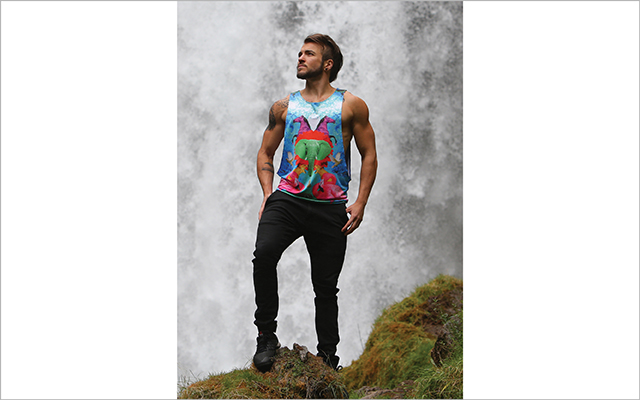 Photography by Brian Davies
Photography by Brian DaviesWhen Aydian Dowling came out as transgender in 2009, fitness quickly became a meaningful aspect of his transition.
“It was powerful to realize that even though I wasn’t born in the body that identified with my gender, my body did not control me,” Dowling explains. “I wanted to look a certain way, and I could — I just had to put in the work.”
No one in his life could relate to his transition, so Dowling took to YouTube, where he found a small community of trans men who were sharing their stories. That inspired him to create a YouTube channel of his own; he now has more than 61,000 subscribers who tune in for fitness tips, advice, and support.
In 2012 Dowling launched his trans-apparel company, Point 5cc. Proceeds go to Point of Pride, a nonprofit he founded to provide gender-affirming services for trans people in need. Those offerings include chest binders, which minimize the appearance of breasts, and financial assistance for trans surgical procedures, most of which aren’t covered by insurance.
Dowling was the first transgender man to appear on the cover of a national fitness magazine when Men’s Health tapped him for its November 2015 issue. And yet that was when his body image was at its worst.
“It was an honor to be able to provide that visibility for the trans community,” he says, “but I felt pressure to uphold a perfect body standard. I was comparing myself to every single guy in the gym, and though I was really fit, I thought I didn’t look good enough.”
These days, Dowling enjoys a more balanced lifestyle, and he sees fitness as energizing for his nonprofit work, his speaking engagements, and his family life.
“I’d rather be a better person than a better body,” he says. “And they go hand-in-hand. If you’re trying to better your person, you’ll be more active, you’ll want to eat nourishing food, and you’ll ultimately be able to give that energy back to the world.”
Mirna Valerio
Ultrarunner; blogger at Fat Girl Running; contributor to Women’s Running magazine; author; motivational speaker
Change domain: Challenging stereotypes in the running world and inspiring a community of body-positive athletes.
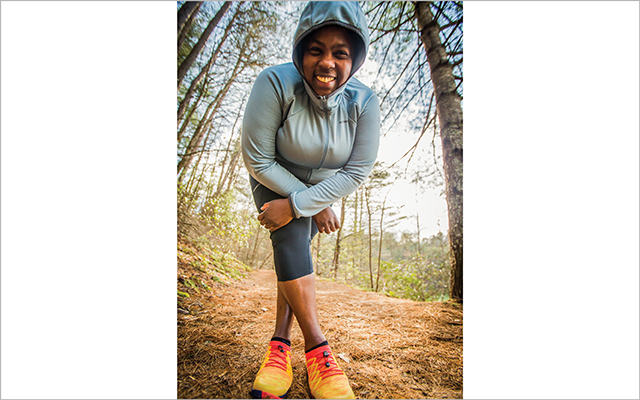 Courtesy of Merrell
Courtesy of MerrellMirna Valerio loves her body, and she’s committed to moving it, no matter what anyone else thinks about it.
A varsity field-hockey and lacrosse player in high school, Valerio suffered a sudden anxiety attack in 2008 — the result of stress, overwork, and the health-sapping effects of postpartum life. Her cardiologist’s message was clear: If she wanted to live to see her baby grow up, she’d have to make some changes.
It was a wake-up call for Valerio, who had seen several family members die prematurely from heart disease. She wanted to model healthy behavior for her son, so she recommitted herself to running. It became the movement that changed her life.
When she launched her blog in 2011, Valerio was seeking a way to document her training for the Marine Corps Marathon and talk about her experiences as a self-described “fat” athlete — a perspective she wasn’t seeing represented online.
“I got a lot of flak from my friends and family about the title,” she recalls. Some suggested Fit Girl Running or Fat to Fit, but Valerio was adamant about her nom de plume. She’d reclaimed her health over the previous three years and lost some weight. “But I was still a big girl,” she says. “It’s part of my identity.”
Fat Girl Running became a platform to shape her own fitness narrative, which wasn’t about weight loss or conforming to the typical runner image. Her stories celebrated the power of her already-capable body and its extraordinary accomplishments: completing her first 50K race in March 2013 over uneven, partially frozen terrain in New Jersey, and conquering the 100K Javelina Jundred in October 2015 on a desert course in Fountain Hills, Ariz.
Those stories resonated with the community she’d attracted online. In October 2017 she reached a wider audience with her memoir, A Beautiful Work in Progress, which documents her journey from high school athlete to ultramarathoner. Today, Valerio is a popular motivational speaker, inspiring others to love their bodies — no matter what size — and to embrace their unique potential for fitness.
Part of Valerio’s success lies in fearlessly claiming the term “athlete,” despite the assumptions she knows people make when they look at her.
“Existing in this body and doing what I do is a revolutionary act,” she says. “I have a tendency to stick myself into places where people think I don’t belong, and I do it with a sense of righteousness, because I do belong in the outdoors. I belong in the running community. Those spaces are mine, too.”
Mubarakah Ibrahim
Founder of the Fit Muslimah Summit; author; motivational speaker
Change domain: Reaching out to marginalized fitness communities and empowering women who follow modesty principles.
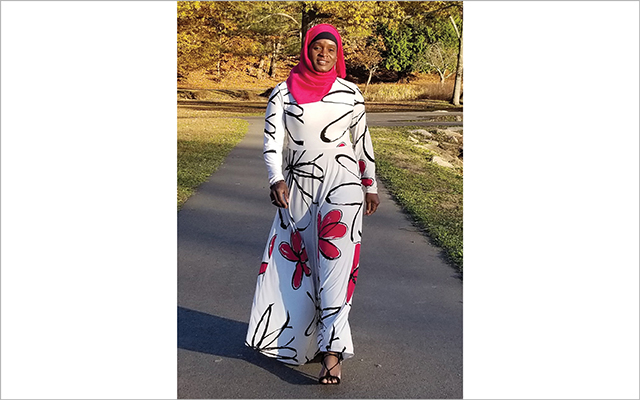
When Mubarakah Ibrahim created a workout plan after her first pregnancy in 1994, it didn’t take long for the women in her community to begin asking for tips. She trained people for free in her spare time until a friend suggested that she consider a career in fitness.
More than a dozen certifications later, Ibrahim is the owner and head trainer at BALANCE Fitness Studio for Women in New Haven, Conn., which opened in 2006. The studio’s mission of “innovative fitness” attracts a diverse range of clients, from postpartum mothers with diastasis recti to older women recovering from knee surgeries.
“When everything else seems like it’s falling apart, move your body,” she advises. “It puts you back in the driver’s seat.”
Her studio model also allows her to reach women who often feel left out of the mainstream fitness culture. For the first several years at BALANCE, Orthodox Jewish women made up her largest group of clients.
“Their faith has a lot of the same modesty requirements as Islam,” Ibrahim explains. “But, whatever your belief system, we all want the same thing: healthy skills that we can apply to our own lives.”
Ibrahim eventually realized that physical health wasn’t a priority for most Muslim women in her community. They didn’t have the knowledge to work out on their own, and they didn’t feel welcome in most gyms. So in 2007 she launched the Fit Muslimah Summit.
That first year, she rented space for about 40 women at her local community center. After she was featured on The Oprah Winfrey Show the following year, the event attracted nearly 300 attendees, who traveled from all over the United States and Canada for two days of fitness classes, nutrition workshops, and fellowship.
“If there’s nobody doing your thing who looks like you, go be that person,” Ibrahim advises. “There are thousands of other people who need your example.”
Matthew Sanford
Certified Iyengar yoga instructor; author; founder of Mind Body Solutions
Change domain: Championing mind–body fitness as an avenue for people of all abilities to live with more awareness in their bodies.
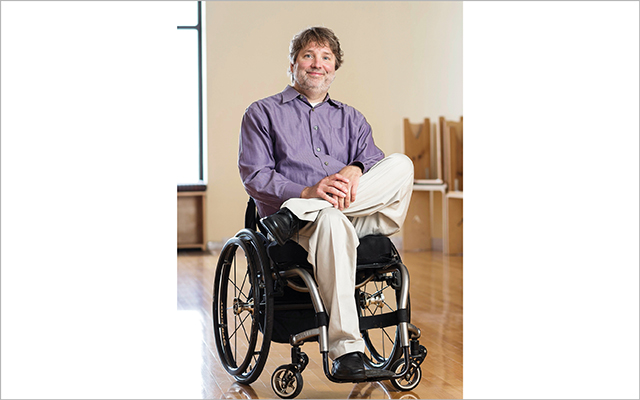 Photography by Andy Richter
Photography by Andy RichterMatthew Sanford has learned from experience that the principles of yoga don’t discriminate. Though he can’t move his legs, deepening his mind–body connection through the practice has allowed him to feel what he calls a “heightened level of presence throughout my entire consciousness, including my lower body.”
For nearly two decades, he’s been promoting mind–body fitness as a healing method for others, helping trauma survivors and adaptive yogis reconnect with their bodies.
After he was paralyzed from the chest down at 13, Sanford’s physicians stressed that any remaining sensations in his lower body were phantom feelings — nonexistent, not to be trusted.
“I encountered a rehabilitation model that taught me to overcome my disability,” he recalls. “Healing meant dragging my lower body through whatever successes I would have.”
That model was intended to manage his expectations, but the result was a mind–body dislocation: He stopped believing in his own sensations.
As Sanford writes in his memoir, Waking, that disconnect eventually compelled him to begin an Iyengar yoga practice at age 26. “I came to yoga because I missed my body,” he explains, “and I was interested in living fully in the only body I’m ever going to have.”
Purposeful alignment in his body during yoga helped Sanford reconnect to his whole self. He felt integrated and more aware, as if his mind–body relationship had reawakened. He realized that the principles of yoga were still applicable to his body — and to all bodies.
In 2001 Sanford founded Mind Body Solutions, a nonprofit designed to help others realize the benefits of mind–body fitness. The center operates a yoga studio, where Sanford teaches regularly, as well as a workplace wellness program, workshops for healthcare professionals, and teacher training for adaptive yoga.
Eventually, the organization hopes to establish adaptive yoga classes in rehabilitation facilities across the country.
As part of his frequent speaking engagements, Sanford often discusses the effects of trauma on both mind and body with medical professionals.
Sanford’s second book is due out in 2019. Waking Again will explore the mind–body relationship and how compassion can grow from it.
“Mind–body health is the sensation of connection that comes from living fully in your body,” he explains. “It’s showing up in your own life. It also means that living a good life is integrating what you can feel and control with what you can’t feel and can’t control. That’s how I define yoga: integrating the intangible parts of me into my life.”
Marilyn Cruz
Adaptive athlete; cofounder and president of I Am Adaptive
Change domain: Reframing “disability” as “adaptation” and empowering a global community of adaptive athletes to pursue their unique potential for mobility and fitness.
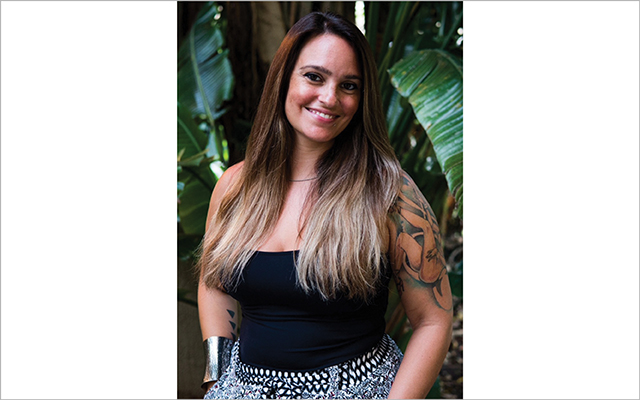 Photography by Evyn Zosia
Photography by Evyn ZosiaAfter Marilyn Cruz suffered a traumatic brain injury (TBI) in 2005, she struggled for years to return to the active life she’d always known. Her lingering symptoms — foggy memory, fatigue, loss of coordination — left her feeling disconnected from her body, her past, even her identity.
“I woke up every day and had to reintroduce myself to my own life,” she explains. “I didn’t have resources to turn to for help. It was very isolating.”
About five years into her recovery, Cruz found her way back to the gym. She can still recall how her first post-TBI workout helped her feel at home in her body and mind again.
By 2014 Cruz was devising a plan to open her own gym. During her research, she stumbled upon a CrossFit video featuring an Army veteran who introduced himself as a TBI survivor and an adaptive athlete.
“I thought, Is this me?” Cruz recalls. “Am I an adaptive athlete?”
That September, Cruz cofounded I Am Adaptive, the resource she wished she’d had when she began her recovery. The nonprofit organization works to educate, socialize, and mobilize adaptive athletes: trauma survivors, injured veterans, and anyone who needs to approach movement differently.
“These people don’t need to feel limited,” she explains. “They need to be empowered.”
Cruz hopes the term “adaptive” will eventually replace words like “handicapped” and “disabled.” I Am Adaptive has other goals, too, including suicide prevention and legislative advocacy for veterans and trauma survivors.
Social media has helped turn that mission into a global movement. People reach out via Twitter and Facebook looking for adaptation-friendly gyms or advice on posttrauma fitness. On Instagram, followers share photos of their own success stories, united under #IAmAdaptive.
“I wanted to create a community where people could come to be inspired and feel less alone, because we are all adaptive,” she says. “Every being on this planet has adaptive qualities. It’s how we survive.
Esera Tuaolo
Former professional football player; founder of the nonprofit organization Hate Is Wrong; former competitor on NBC’s The Voice
Change domain: Fostering diversity in sports and preventing bullying among youth by offering education for LGBTQIA+ inclusivity in school districts across the country.
When Esera Tuaolo came out as gay on HBO’s Real Sports in 2002, he was one of only three former professional football players who had done so. Having spent his nine-year NFL career in the closet, Tuaolo knew firsthand the effects of the league’s stereotypical masculine culture.
“People expect NFL players to be macho and tough, but stereotypes of gay men are the opposite,” he explains. “People assume gay men are weak, fragile, and submissive. I was constantly afraid someone would out me and end my career.”
While he was playing, Tuaolo made it his mission to stand up to discriminatory behavior among his teammates, leaning on his personal motto: “Hate in any form is wrong.” After he came out, Tuaolo began speaking at colleges and corporations about inclusivity, using his personal motto as the title of his campaign.
In 2017, feeling a growing threat to LGBTQIA+ rights, Tuaolo wanted to do more to spread his message. So he launched his nonprofit organization, Hate Is Wrong, to promote diversity in sports and antibullying efforts among youth.
Hate Is Wrong hosts the Super Bowl Inclusion Party — the first-ever NFL-sponsored event focused on uniting the football and LGBTQIA+ communities in the Super Bowl’s host city. The 2018 party in Minneapolis raised more than $40,000 for local antibullying charities.
“Sports are so central to people’s lives, no matter your community or background,” Tuaolo says of the organization’s focus. “And since bullying is a precursor to discrimination, our two-part purpose prepares kids to be more inclusive when they grow up — and also sends that message to adults.”
He hopes to expand the organization, offering more speakers and events, including its popular Anti-Bullying Family Luaus, catered evenings at high schools across the country where families can learn how to prevent bullying in their communities and foster an atmosphere of acceptance for the next generation.
“It’s unfortunate that many people don’t feel represented in what they love to do,” Tuaolo says. “But don’t confuse representation with belonging. Even if you get pushback, if you stay true to yourself and your passion, you can become that representation for someone else.”
This originally appeared as “Redefining Fitness” in the November 2018 print issue of Experience Life.
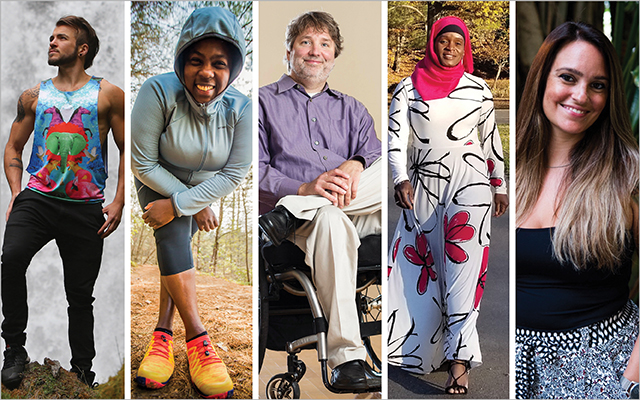
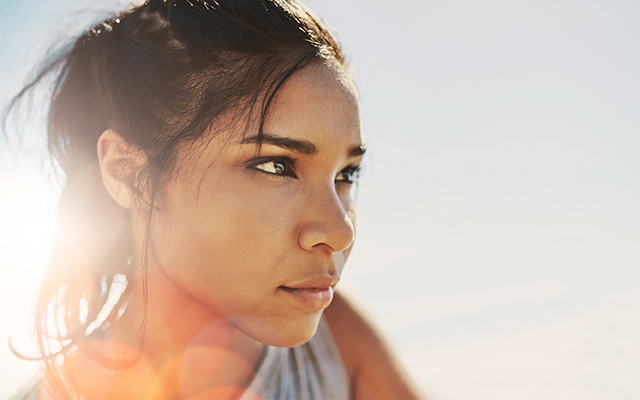
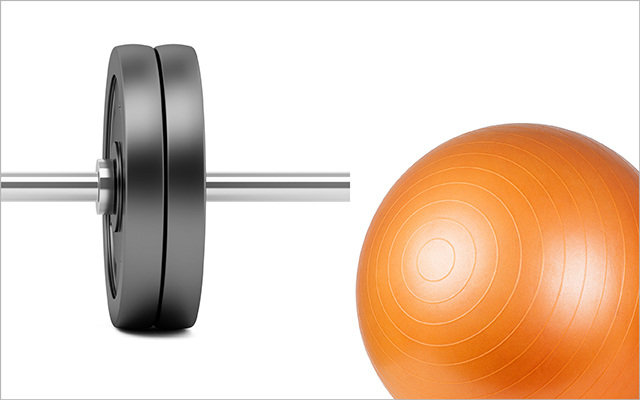
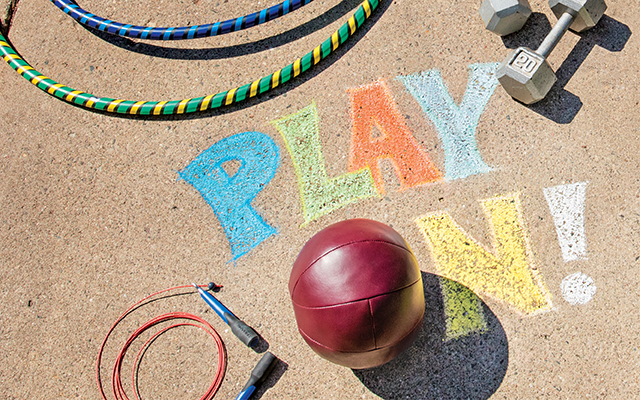
This Post Has 0 Comments